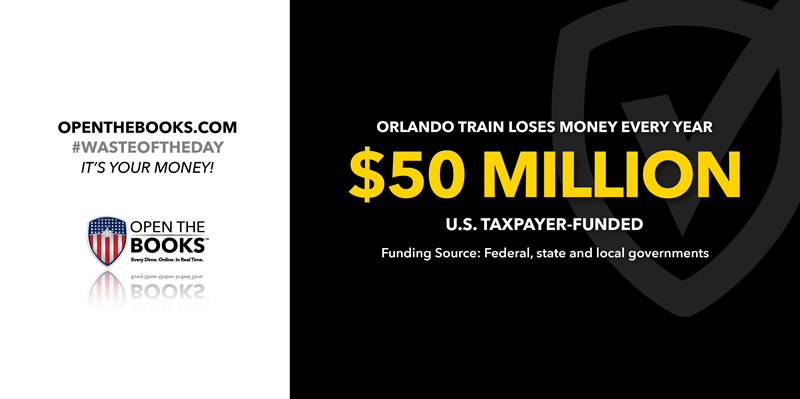
U.S. Giving $125K to Saudi Arabia for Women’s, Youth Sports
April 25, 2022

The U.S. State Department will give up to $125,000 to nonprofits in Saudi Arabia to encourage women and youth empowerment through sports, according to a grant notice from the U.S. State Department.
The project should involve women and youth from rural areas of Saudi Arabia, and focus on soccer, basketball, motorsports, American football, “or other sports where Saudi women and youth are traditionally underrepresented.”
Other components that should be included in the project are strengthening women’s sports federations in Saudi Arabia, training and certifying women referees, facilitating the collaboration between Saudi and American sports teams and organizations, and creating a public relations campaign to share key program messages with nonparticipants.
While the goal of empowering women and youth in Saudi Arabia may be laudable, the grant program is flawed. In a country where women were only granted the right to drive cars in 2018, larger structural barriers to female empowerment are more worthy of attention.
Increasing female participation in business and government would be a better goal in the short term.
While supporting the equal rights for women and youth in every country in the world is a noble goal, any project that adds to the U.S. debt should be reconsidered. International charities are more capable of helping women and children toss a football around.
State Department Spending $75K on ‘Food Diplomacy’ in India
April 26, 2022

The U.S. Mission to India will spend up to $75,000 to promote “cultural and culinary diplomacy” by making cooking videos and going on “foodie walks” in major cities in India, according to a grant notice from the U.S. State Department.
The program will use social media to demonstrate the U.S.-India strategic partnership “through cultural and culinary diplomacy,” as well as, “generate increased demand and interest in U.S. foods, and maintain a positive perception of U.S.-India relations.”
It also aims to “engage in a two-way conversation with the Indian consumer, focusing on the significance of the U.S.-India relationship, and the importance of food for both country’s multicultural national identity, to promote growth, prosperity, and trade.”
While these are important goals, the State Department should reconsider the way it’s trying to achieve them.
The grant notice says that these goals will be achieved by making videos in major metropolitan areas like New Delhi, Kolkata, Mumbai, Chennai, and Hyderabad that “showcase traditional Indian dishes/cuisines and demonstrate where ‘fusion’ U.S.-origin ingredients are being incorporated.”
These videos will include officials from the U.S. Embassy participating in cooking demonstrations with local chefs, as well as going on “foodie walks” to explore local cuisines.
While it’s unclear how American officials going on a “foodie walk” through New Delhi will strengthen U.S.-Indian relations, what is clear is that $75,000 is an excessive amount of money to grant this project.
Orlando Public Transit Loses $50M Annually
April 27, 2022

SunRail, a commuter rail system that services 16 stations in the Greater Orlando Area in Florida, is running a $50 million deficit each year, according to an investigation by Fox 35 News.
The SunRail network began service in 2014, but after only a year, it began reducingits schedule due to a lag in riders.
As of Fox 35's February 2021 investgation, SunRail had fewer than 1,000 riders per day, down from an average of 5,609 before the pandemic. It expected to make $16 million that year, but costs were budgeted at $66 million. Taxpayers are left to make up the deficit.
Orlando Mayor Buddy Dyer defended the project to Fox 35, saying “there’s no public transportation that I know of that makes a profit.”
While he is correct, according to a 2015 study by The Hamilton Project, smaller metro systems like Seattle, Cleveland, and Pittsburgh take a loss averaging $4 per ticket. In Orlando, that loss is over $20 per ticket, according to Fox 35.
While public transit should be affordable for riders, subsidizing over $20 per ticket is unsustainable. That money must come from somewhere, and in the case of the SunRail, its coming from federal, state, and local taxpayers. Public transportation can be not-for-profit and subsidized, but SunRail should do better.
Residents told Fox 35 the system isn’t expansive enough to be useful. SunRail board members are considering adding a line that connects SunRail to Orlando's airport, but it is unclear how long this, or any other expansions, might take.
Until then, it looks like the spiral of SunRail will only get worse, while taxpayers bail them out.
Throwback Thursday: In 1980, EPA Spent $1M to Preserve Sewer as Historical Monument
April 28, 2022

Throwback Thursday!
In 1980, the Environmental Protection Agency wasted between $1 million and $1.2 million — $3.5 million to $4.2 million in 2022 dollars — to preserve an underground sewer as a historical monument.
Sen. William Proxmire, a Democrat from Wisconsin, awarded the EPA his Golden Fleece Award for flushing tax dollars down the drain.
In 1975, the EPA required the City of Trenton, New Jersey to upgrade its sewer system and sanitation plant.
Trenton planned to build the new sewers through part of an existing 100-year-old brick Lamberton Street sewer.
Their historical preservation officer, however, found that it wasn’t usable but still wanted to preserve it.
She wrote to the EPA to express her concern that destroying this hidden, underground sewer would constitute a loss of “a symbol and expression of America’s former engineers, engineering, urban life, and planning.”
Given this information, the EPA issued another edict: the City of Trenton now had to preserve the old sewer and build a new sewer parallel to the old.
By requiring the construction of a new sewer next to the old, as well as hiring an archeologist to ensure the old sewer would be properly preserved during construction, the EPA cost the City of Trenton (and taxpayers) an additional $1 million to $1.2 million.
The sewer is not on display, is not accessible to the public, and was full of mud and sludge. In fact, it was only viewed twice in 23 years prior to 1980.
Luckily, the city of Trenton added plaques above ground at each end of the sewer to alert pedestrians of its existence, so visitors could enjoy the historic Lamberton Street sewer for years to come.
U.S. Gave Russian Lab $550K for Gruesome Cat Experiments
April 29, 2022

In 2021, the U.S. sent the Pavlov Institute of Physiology in St. Petersburg, Russia $550,000 to conduct horrific experiments on cats, according to the White Coat Waste Project.
The Washington Free Beacon reported that one of the experiments from the St. Petersburg lab included 18 cats getting “decerebrated” and then walked on a treadmill.
Decerebration involves eliminating cerebral brain function by cutting across the brain stem, losing certain reflexes. In this experiment, the researchers attached electrodes to the spinal cords to direct the cats’ motions on a treadmill.
Six Republican congress members wrote a letter in March asking President Biden to stop the funding.
According to the letter, the National Institutes of Health has approved four Russian labs to receive U.S. taxpayer funding. Additionally, 27 labs in China receive NIH funding, for a total of 31 labs in both countries, according to the Free Beacon.
Sadly, the National Institutes of Health has a record of funding live animal experimentation, with recently reported examples including injecting beagles with cocaine and getting monkeys high on marijuana. The nonprofit White Coat Waste Project has uncovered many of these disturbing projects that were funded with U.S. taxpayer dollars.
While some may argue that animal experimentation is a necessary evil to advance science, there is no reason that the controversial practice couldn’t be funded privately through foundations and universities instead of funding it in Russia and China.
The #WasteOfTheDay is presented by the forensic auditors at OpenTheBooks.com.